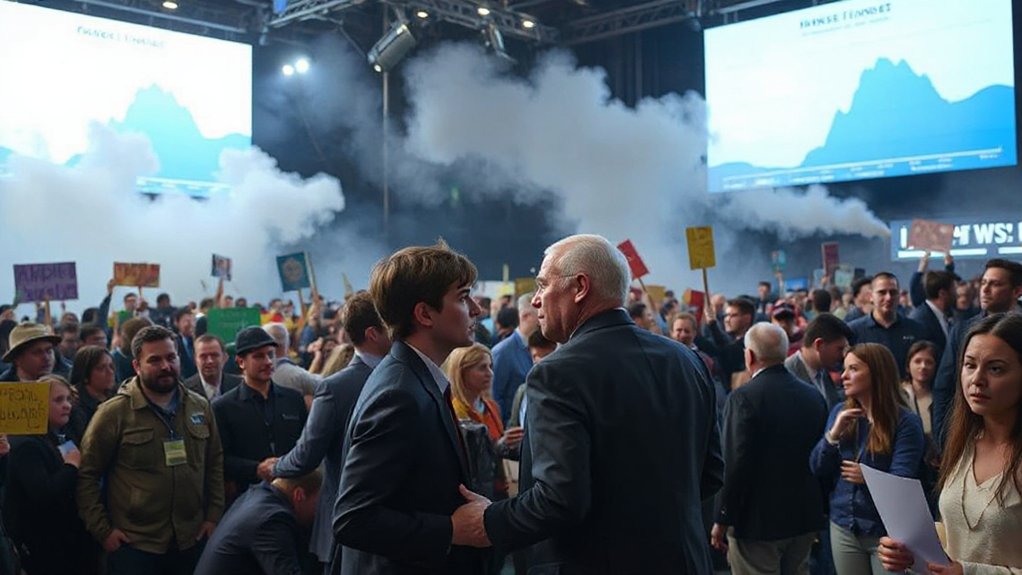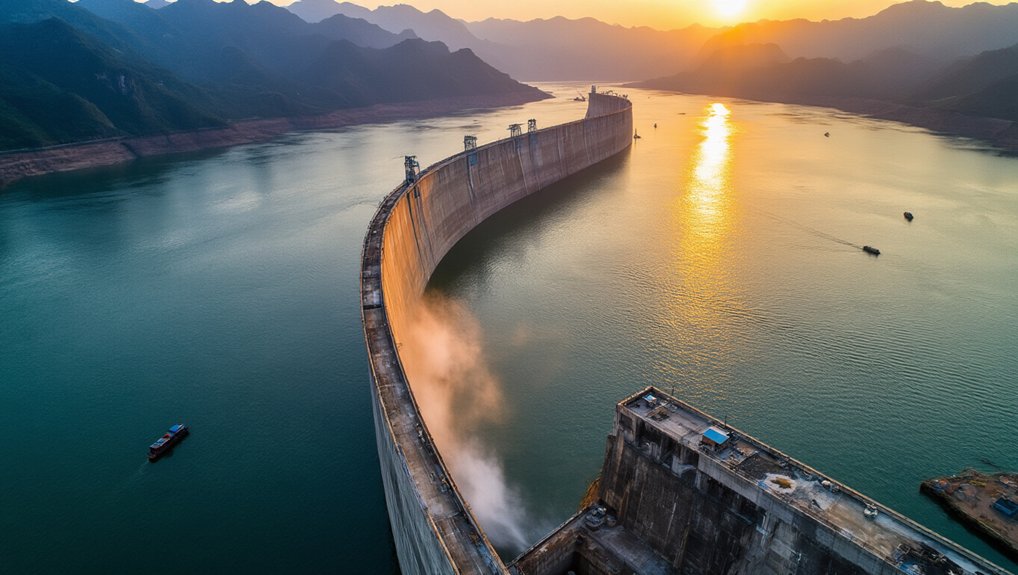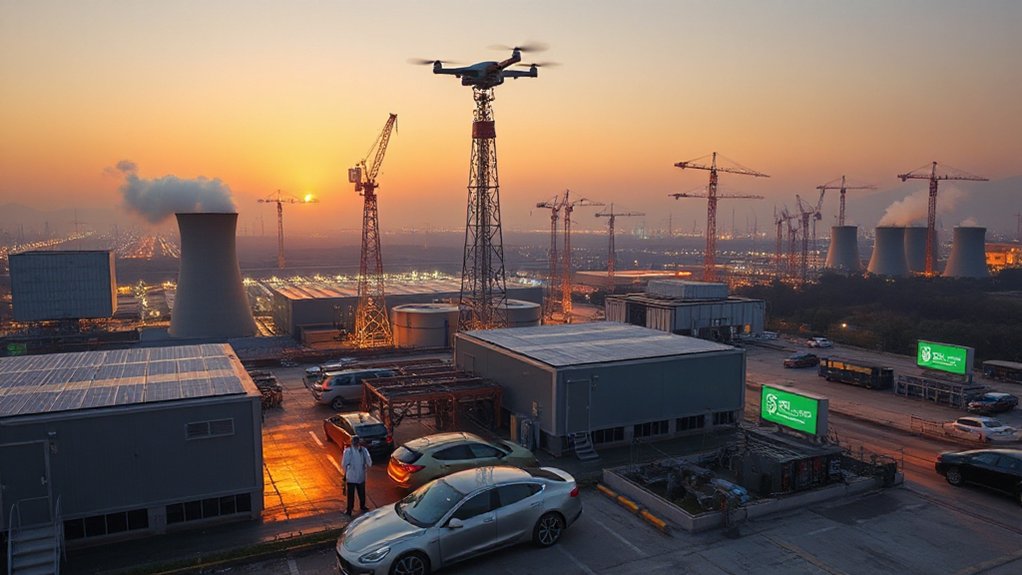Where exactly will humanity be when the clock strikes midnight on our climate emergency? Not in a great spot, apparently. At the Times Forum yesterday, experts traded verbal blows over stark projections showing a 70% chance that we’ll exceed the critical 1.5°C warming threshold by 2029. Yeah, that’s just five years away, folks.
The data doesn’t lie. Arctic regions are warming faster than anywhere else, while early 2025 already ranked as the second warmest first quarter on record. One panelist quipped, “We’re setting records faster than Olympic swimmers,” drawing nervous laughter from the audience. Arctic warming is predicted to be over three times the global average, with temperatures 2.4°C above baseline levels.
Things got heated when economic impacts took center stage. An 11-14% reduction in global GDP by mid-century? That’s not just numbers on a spreadsheet—that’s livelihoods destroyed. The emissions gap remains massive: we need to cut 29-32 gigatons annually to stay under 1.5°C. Instead, fossil fuel production is increasing 2% each year. Make it make sense.
The economic reality is brutal: while our GDP tanks, our fossil fuel addiction keeps growing. Climate math doesn’t add up.
Scientific findings presented at the forum painted an even grimmer picture. Glacier melt is accelerating through newly discovered feedback mechanisms. The melting ice exposes soil that releases more greenhouse gases. It’s a vicious cycle. No wonder atmospheric “thirst” has increased drought severity by 40% globally. Record-low sea ice cover was observed in the Arctic from January to March 2025, with a record-low winter peak extent recorded in late March.
National policies drew the sharpest exchanges. The UK earned grudging praise for shutting down coal plants and planning to ban new fossil-fuel cars. Meanwhile, Argentina’s representatives faced brutal criticism for their government’s climate denial stance and policy rollbacks.
The forum concluded with a sobering reminder: by 2070, unbearable temperatures could make regions uninhabitable for 3 billion people. That’s not some distant future problem—that’s within many people’s lifetimes.
As one scientist put it before storming off stage: “We’re arguing about deck chairs while the Titanic is halfway underwater.” Hard to argue with that.
References
- https://wmo.int/news/media-centre/global-climate-predictions-show-temperatures-expected-remain-or-near-record-levels-coming-5-years
- https://www.carbonbrief.org/state-of-the-climate-2025-close-behind-2024-as-the-hottest-start-to-a-year/
- https://charitydigital.org.uk/topics/climate-change-facts-you-need-to-know-in-2025-10655
- https://en.wikipedia.org/wiki/2025_in_climate_change
- https://ccpi.org
- https://www.ncei.noaa.gov/access/monitoring/monthly-report/global/202505
- https://www.un.org/en/climatechange/reports
- https://www.climate.gov/news-features/understanding-climate/climate-change-global-temperature
- https://www.germanwatch.org/en/cri
- https://www.ncei.noaa.gov/news/global-climate-202501









